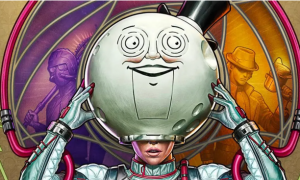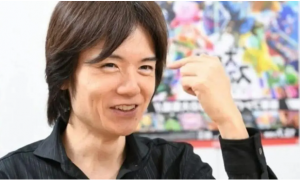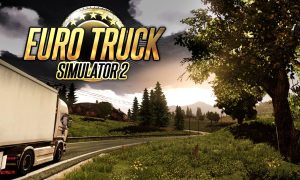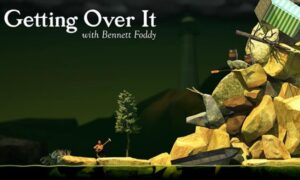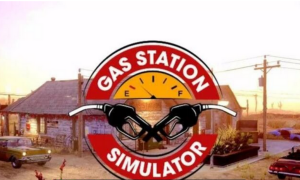The Simpsons, Springfield & Small-Town Societies
The Simpsons are one of the most famous television shows, with a staggering array of characters. The small community of Springfield is full of distinct personalities. You can recognize the misanthropic bartender, disaffected minister to the church, and the repressed school principal as all the Simpsons characters. The Simpsons is a show about characters. It’s not Fat Tony or his Mafia cronies. But it’s about the people and the mob.
America’s cartoon sweetheart operates on two levels when it comes to its poor little town. Once they have been merged into one unit, the people and the citizens. Of course, The Simpsons are all about individuals. It needs to have specific characters that can speak certain lines to show its intricately written dialogue.
The Simpsons’ deep humour and social criticism that give it its true satirical edge come from its deconstructions of American culture through the eyes of the Springfield crowd. In this case, the unruly mob is its character. It’s susceptible to manipulation, coercion, hysteria and maddening unpredictability.
Springfield, like many others, is attached to strange rituals that permeate nearly all cohesive societies. These strange events, holidays, and celebrations, whose origin stories, warped mythologies, have only become more obscured over time. The town’s vocal reaction to any possible slur or physical defacement by Jebediah Springfield reveals a desire for the past to be preserved. However, Whacking Day, the odd ritual that the town follows, signifies a society that values history.
These mythologies completely seduce Homer. But the extent to which Lisa and the whole town are consumed with festivities that aim to kill innocent reptiles is quite striking. Marge, who is usually the show’s voice of reason, finds herself during all this chaos.
Whacking Day’s origins are also lost in translation, just as Jebediah Springfield is something entirely different from what he claimed. As with so many traditions, including football hooliganism and hazing initiations – the reverence and understanding of its origins has been replaced by mindless violence and the need to be validated socially.
A recently-trained Bart tells an assembled mob that Whacking Day is nothing but a sham ” created in 1924 to beat up the Irish”. Although the ritual was violent in Springfield’s instance, it still carries a confusing and misunderstood history.
The cult around Whacking Day reveals the Springfield mob’s vulnerability to changing their behaviours through the indoctrination with prevalent mythologies. It’s also a great example of how adaptable the residents of this small town can become. Bart’s revelation causes a comically immediate change in heart among the assembled masses. Mayor Quimby’s claim of “twelve live snakes” is met by boos.
Quimby is quite rightly complaining that Quimby is sick of these people. “You’re just a bunch of fickle mushheads!” While Springfield may have held on to Jebediah’s devotion, Bart’s words had an immediate impact. Springfielders seem to be unpredictable in their unpredictability.
Springfield residents are perfect targets for manipulation because of their inherent gullibility, changeability, and vulnerability. Power structures heavily influence America’s forgotten city. The archetypal brooding businessman, Mr Burns, can exert control over his subjects. He does this by bribing Homer as a union leader, Lisa or even the mayor.
In Season 2’s excellent episode to Cars and Three Eyes on Every Fish’ Burns faces Mary Bailey, an established Governor. He uses his power and influence in trying to influence the election. Later, he makes a self-promotional motion picture called “A Star is Burns”. On this occasion, residents are clever enough not to buy it.
Although Burns’ manipulation attempts come from a place of wealth, Springfield residents are generally happy to be persuaded into doing almost anything provided they are presented with the correct information. Brad Goodman, an evangelical self-help peddler, flies across Springfield’s shores and offers his misguided advice to the town to follow Bart’s errant behaviour. The town responds with unfailing obedience.
In the classic ‘Marge Vs. Lyle Lanley, a shameless huckster, convinces the town that they need a Monorail transit system, even though the funds could be used for other purposes, from fixing van-sized potholes to putting out fires.
It is Springfield’s corrupt mayor who once again summarises how rational Springfield can be: “We are twice as smart than the people of Shelbyville.” We’ll vote for your idea if you tell us. There are many better options, but the showmanship and flashy lights often win over the rational voice of reason.
This is because each person wants to be accepted and validated socially. As you might expect, Homer is desperate to be accepted by his fellow townsfolk. This trend is often displayed throughout the show.
Springfield residents are not coerced into participating in projects with little or no benefit. They also tend to panic, panic, and hyperventilation. This is all thanks to sensationalist media and a lack of primary education. Osaka flu strikes the town in “Marge in Chains”, yet another mob refuses advice from someone more qualified than them. Dr Hibbert explained that bed-rest is the only cure. Any advice I give you is only a placebo.” This leads to people tipping over trucks full of killer kinds of honey in vain attempts to find this “cure”.
The same episode also features the unmasking of Jimmy Carter, which leads to widespread looting and vandalism, as well as the collapse of social order. It is still relevant to criticize small-town American society for being marked by mistrust of expertise, reason, and the lack of an effective education system.
The Simpsons’ characters, events, and even the town exemplify American society. The show could quickly identify which parts of society it is shaming and which are getting a poor deal by populating the town’s streets with familiar characters and archetypes that are easily identifiable. Springfield is a microcosmic representation of small-town communities. It’s the kind of place that can be easily influenced by manipulative news corporations and predatory capitalists, as well as spreaders of cynical misinformation.
Springfield is a town that seeks a quick solution to its more severe problems through a combination of poor education, low state funding, and exhausted apathy. Although Springfield is a small town known for its ever-burning tire fires and sub-standard baseball team, it houses many of the problems modern American society faces.
It is well-documented that The Simpsons have been able to predict the future. From anticipating the Disney/Fox merger to predicting that Donald Trump would be President. However, it seems unlikely that these writers used supernatural powers to create eerily accurate visions.
Most of these predictions, however, were based on an inborn understanding of how societies work and how people are often manipulated by, exploited, and influenced within the communities they belong to. The Simpsons writers understood the mind and culture of the mob. Their insights into contemporary society helped them decode the future’s fog.


